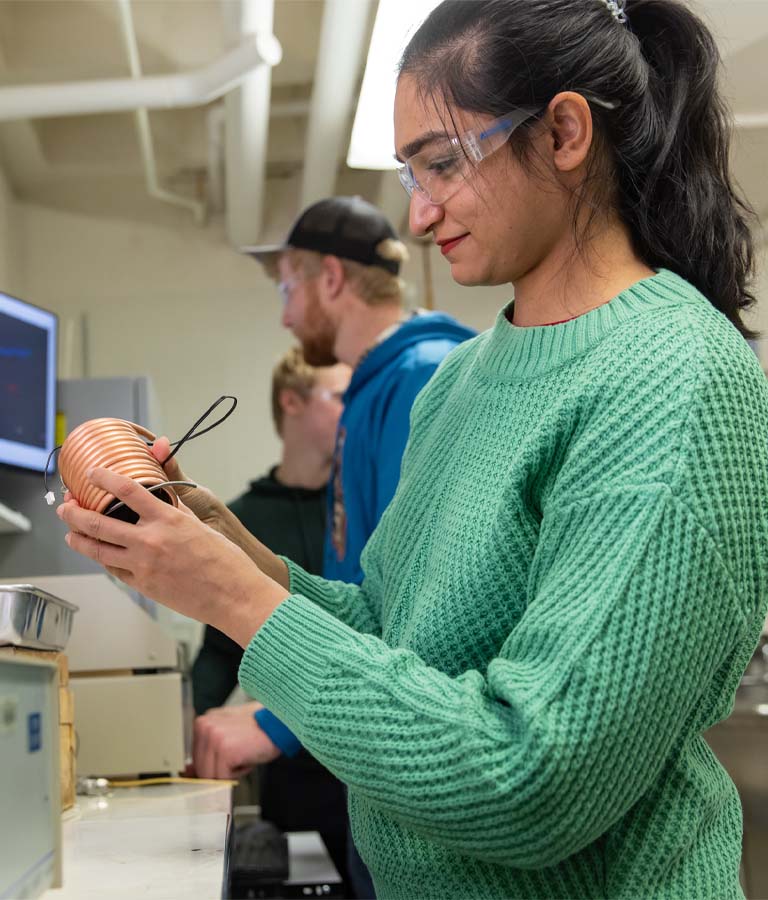Top Online University | UND

Knowledge to Lead
Whether it's solving problems or creating new technologies, engineering is a foundation of developing society. Civil engineers are experts at planning, the design and the construction of civil infrastructure. Mechanical engineers have the skills to pursue careers in design, thermal systems, manufacturing, and industry or government materials. Chemical engineers transform substances and solve problems in a broad range of industries. Electrical engineers are integral to creating the components that power our world. No matter the engineering path, our graduates are prepared to make an impact in the industry with the skills to lead.
Most affordable online engineering bachelor's
Best online engineering bachelor's
National media salary for engineering
Lightcast
Civil Engineering (B.S.)
Civil engineers have a direct impact on the world. They create and improve the way we move, interact and live in our communities. It's a rewarding profession that combined planning and designing, and hands-on project management.
- Gain the ability to apply knowledge of mathematics, science and engineering in the field.
- Learn AutoCAD and Java (Programming Language), and study with professors and instructors who bring their real-world experience to the classroom.
- Complete the 128-credit program in four years.
Mechanical Engineering (B.S.)
Machines are at the core of our daily lives, and mechanical engineers are responsible for designing them.
- Earn your degree on-campus or through our flexible, 100% online option.
- Gain hands-on experience with science course labs and build at least one component or system every year during your studies.
- Work on wind-tunnel experiments, space hardware design, nanotechnology and other projects.
Chemical Engineering (B.A.)
Chemical engineers transform substances and solve problems in a broad range of industries. They help make products and processes faster, safer, more reliable and sustainble.
- Learn the fundamentals of the physical sciences, math and chemical engineering.
- Participate in a hands-on lab sequence that relates course content to real-world applications.
- Design, conduct and analyze your own experiments.
Electrical Engineering (B.S.E.E.)
Electrical engineers are integral to creating the components that power our world. It's a rewarding profession that offers many different specialty options, excellent compensation and exceptional opportunity.
- Gain hands-on experience to develop your ability to identify, forumate and solve electrical engineering.
- Learn leadership, communication, multidisciplinary teamwork, entrpreneurial and lifelong learning skills necessary for success in a global marketplace.
- Build problem-solving capabilities and technical skills to practice electrical engineering.
See how online learning works at UND.
Watch Video
